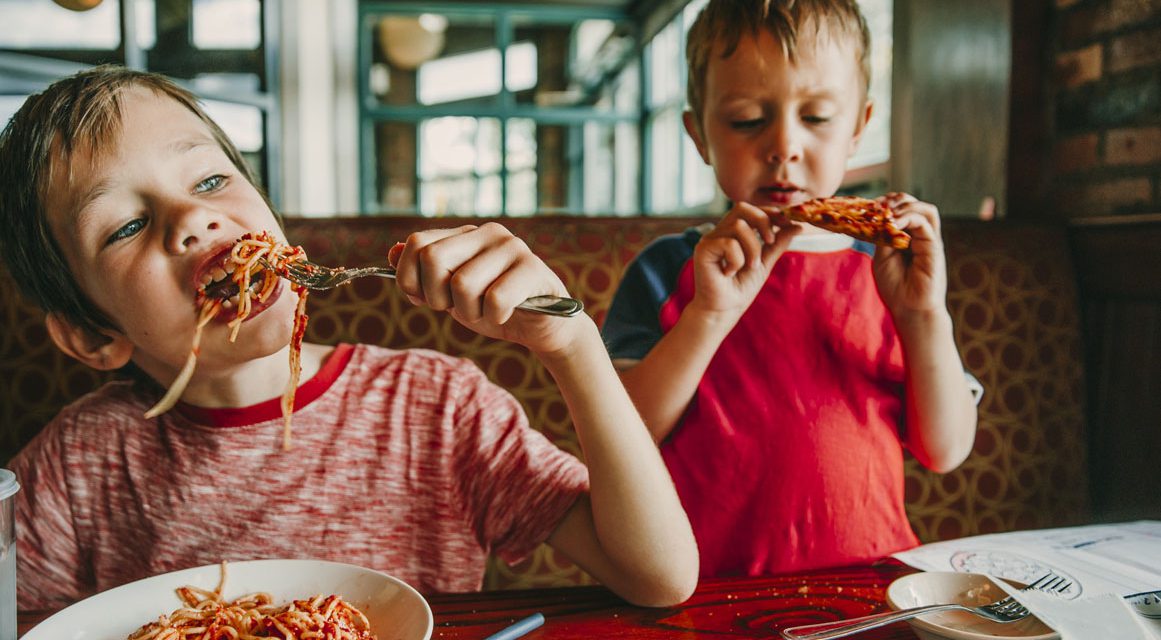Have you noticed that kids these days do not have the best manners? When I volunteer at my daughter’s school at lunch time, I rarely hear the children saying please and thank you, although they are certainly not shy about requesting more ketchup or cheese for their plate. Sometimes I like to give them a manners nudge by serenading them with the phrase “more cheese please?”
My husband and I have always made teaching manners to our children a priority in our house. While we do not expect to flash back to the 1950s and have our children address every adult they meet as Mrs. or Sir, we do ask that they say please, thank you, and excuse me. Sure, it takes quite a bit of training (and sometimes nagging as well) from the time they speak their first word, but we know that having good manners will help them be kinder, nicer, more successful people throughout their lives.
Reason for This Trend
A 2016 survey by the Associated Press-NORC Center for Public Affairs found that 74 percent of Americans think manners and behavior have deteriorated in the United States over the past several decades. Interestingly, clear differences between what older Americans and younger Americans consider to be rude behavior were revealed in the study. For example, almost half of Americans age 18 to 29 think it is perfectly acceptable to use cell phones in restaurants, while only 22 percent of those over age 60 agree. This discrepancy indicates a clear trend in how manners and rudeness have changed over generations.
What is the reason for this change? Experts blame technology and busy parents for this trend. When both parents work long hours and children are raised by other caregivers, like nannies and daycare or after-school staff, they do not receive the same guidance and skills to help them form good manners. It also seems to be widely accepted that teachers do not need to be responsible for giving lessons about manners. That means it’s up to parents to instill these values with the limited time they have with their children. Also, many parents feel guilty about all the time they spend at work, so they try to act like their children’s best friend instead of their disciplinarian.
Second, technology gets blamed a lot for kids’ lack of politeness. According to Alex J. Packer, PhD, author of the book How Rude! The Teen Guide to Good Manners, Proper Behavior, and Not Grossing People Out, today’s electronic devices and social media lead to a culture of rudeness. Communicating in brief snippets with texts and tweets can distort the intended meaning of words and can cause bad manners. Spending so much time on devices also pulls kids away from personal interaction with their peers and adults. This means they are not practicing how to speak to others kindly. Finally, when kids communicate through electronics, they have more freedom to be rude since they can be anonymous and removed from the situation.
Why Good Manners Are Important
If it’s becoming widely accepted that manners no longer matter, then why should we care whether our kids have good manners at all? Just because everyone’s doing it doesn’t mean we should follow the downward trend. Good manners are still critical to a child’s successful growth and their ability to build positive relationships throughout their lives.
At the core, good manners reflect respect for ourselves and others. When we say please and thank you, we are taking the time to make someone else feel appreciated. Additionally, Dr. Pier Massimo Forni, professor and co-founder of the Civility Project at Johns Hopkins and author of Choosing Civility: The 25 Rules of Considerate Conduct, explains that it is crucial for children to learn to connect civility with strength and determination. This is achieved through character development in the home, and these positive traits can be applied to other situations in their lives. Our children depend on us to show them how to be trustworthy, considerate, and kind to others so that they can take these skills with them throughout school, the workplace, and in their relationships.
How to Teach Children Good Manners
It’s never too early to teach your children good manners, but you may reach a point when it becomes a major struggle if you wait too long. One etiquette expert suggests teaching kids the basics of good manners by the time they reach eight or nine years old when they completely understand what respect means.
Some of the main concepts to teach your children include:
Using nice words. Teach them how to say magic words like please when they ask for something and thank you when they receive something. It is also important that they learn to say they are sorry and “excuse me” when appropriate. Bottom line—they should try to be as kind as possible to others and treat them as they would want to be treated.
Meal-time etiquette. Work with your children to develop appropriate behavior during meals and special occasions, such as doing the following:
- Put away electronics.
- Wait until everyone is seated and served before eating.
- Use your utensils and your napkin.
- Take small bites.
- Chew with your mouth closed.
- Don’t talk with your mouth full.
- Keep your elbows off the table.
- Don’t pick food out of your teeth in public.
Interpersonal connection. Give them the skills to be able to communicate and connect with others. Some guidelines include:
- Not interrupting others while they are talking.
- Speaking in complete sentences instead of one-word answers.
- Give full attention to someone talking to them, which includes looking them in the eye.
- Be sure to smile to appear inviting and interested in what others have to say.
- If comfortable, shake hands or hug the person.
Good sportsmanship. Teach your children to lose gracefully and to always thank their opponent at the end of a game. By focusing on the positive aspects of sports and games, like taking turns, learning new skills, playing as a team, and reaching their goals, there will be fewer bad manners when they lose.
You don’t need to invest hundreds of dollars in an etiquette class for your little one like some parents are doing; you really can do this yourself. It’s all about being consistent and modeling the positive behavior. Be mindful of using kind words when you speak to your children and other people, like servers in restaurants. If you repeatedly say please and thank you to them, they will start mimicking your language.
You can also use some fun, creative ways to instill good manners in your children.
- Ask them to write real thank-you notes after they receive gifts.
- Create a charades-like game by teaching them signals when they need to use better manners, such as tapping the corner of your mouth when they should to use a napkin or putting your pointer finger up to your lips when they need to stop talking and give someone else a turn.
- Make a good-manners collage by cutting out words and images that can be hung up as a reminder.
- Read books about manners, such as Manners, May I Please Have a Cookie?, My Mouth Is a Volcano!,The Thank You Book (An Elephant and Piggie Book), Penguin Says “Please”, Richard Scarry’s Please and Thank You Book, Excuse Me: A Little Book of Manners, Manners Time










